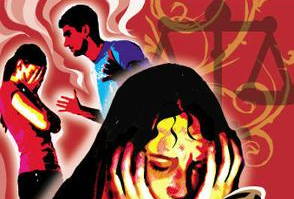 New Delhi, Nov 29: Check the man's marital status before going in for a live-in partnership was the loud signal from the Supreme Court which ruled that Domestic Violence Act could not be invoked by a woman in a live-in relationship with a married man, especially if she knew his marital status.
New Delhi, Nov 29: Check the man's marital status before going in for a live-in partnership was the loud signal from the Supreme Court which ruled that Domestic Violence Act could not be invoked by a woman in a live-in relationship with a married man, especially if she knew his marital status.
A relationship between a woman and a married man could not be termed a 'relationship in the nature of marriage', the basic requirement for an aggrieved woman in a live-in relationship to take recourse to DV Act for action against her 'erring' partner, the court said.
After giving this interpretation to live-in relationship between a married man and an unmarried woman, a bench of Justices K S Radhakrishnan and Pinaki Chandra Ghose said if the married man walked out of such a relationship, the woman was not entitled to seek maintenance under DV Act from him.
On the contrary, it warned, the deserted woman ran a risk of being sued for damages by the man's wife and children for alienating them from the love and care of their husband/father.
But the bench was aware of the social reality of married men walking out of live-in relationships. Finding that in such situations, poor and illiterate women suffered the most, the apex court appealed to Parliament to take remedial measures through appropriate legislation.
One Indra Sarma had a live-in relationship with V K V Sarma, already married with two children. The man moved in with her, started a business enterprise with her and after several years, went back to his family.
After the live-in relationship ended, Indra moved a Bangalore court demanding from him a house, a monthly maintenance of Rs 25,000, reimbursement of her medical bills and Rs 3.50 lakh in damages.
The trial court found that the two lived together for 18 years. Finding the woman aggrieved, the magistrate directed the man to pay Rs 18,000 per month towards her maintenance under DV Act. The sessions court upheld the trial court decision.
But the Karnataka High Court set aside the trial court order saying the live-in relationship did not fall within the ambit of "relationship in the nature of marriage", a cardinal principle for one to invoke DV Act.
Upholding the HC order, Justices Radhakrishnan and Ghose said, "We are of the view that the appellant (Indra Sarma) having been fully aware of the fact that respondent (V K V Sarma) was a married person, could not have entered into a live-in relationship in the nature of marriage.
"Appellant's and respondent's relationship is, therefore, not a 'relationship in the nature of marriage' because it has no inherent or essential characteristic of a marriage, but a relationship other than 'in the nature of marriage' and the appellant's status is lower than the status of a wife and that relationship would not fall within the definition of 'domestic relationship' under Section 2(f) of the DV Act. Consequently, any act, omission or commission or conduct of the respondent in connection with that type of relationship, would not amount to 'domestic violence' under Section 3 of the DV Act."
But the bench noticed the deficiency in law to address such relationships in which women, especially poor and illiterate, suffer the most when their partners -already married men - just walk out. The court said it was for Parliament to take remedial legislative steps to plug this loophole in law.
The bench said, "We have, on facts, found that the appellant's status was that of a mistress, who is in distress, a survivor of a live-in relationship which is of serious concern, especially when such persons are poor and illiterate, in the event of which vulnerability is more pronounced, which is a social reality. Children born out of such relationship also suffer most which calls for bringing in remedial measures by Parliament through proper legislation."
Despite the concern, the bench decided to go by the law and said, "If any direction is given to the respondent to pay maintenance or monetary consideration to the appellant, that would be at the cost of the legally wedded wife and children of the respondent, especially when they had opposed that relationship and have a cause of action against the appellant (the woman) for alienating the companionship and affection of the husband/parent which an intentional tort."






Comments
Add new comment